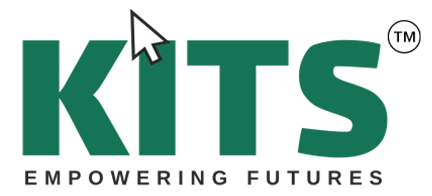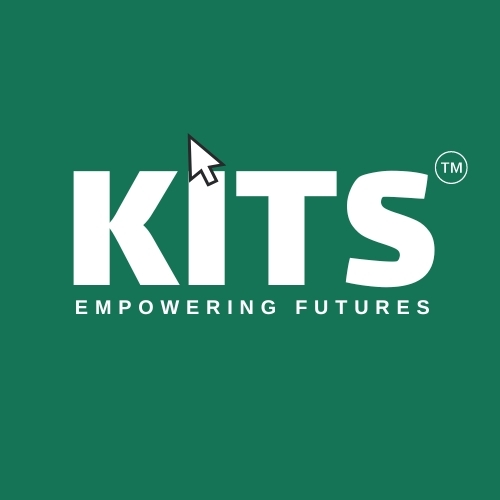Start your Beginner’s Guide to Ethical Hacking featuring step-by-step insights and practical tips to help you become proficient in cybersecurity.
Introduction
Are you interested in developing your cybersecurity skills through ethical hacking? Whether you’re aiming to pursue a career in cybersecurity or simply want to understand how to protect your digital assets, mastering the basics of ethical hacking is crucial. This Beginner’s Guide to Ethical Hacking will introduce you to fundamental concepts and skills and is the perfect starting point for you.
The domain of ethical hacking, also known as penetration testing or pen testing, is a dynamic and rapidly evolving field. Professionals in this area encounter new challenges regularly, making it an exciting, demanding, and fulfilling career path. This profession necessitates ongoing learning and adaptation to stay abreast of advancements in technology, cybersecurity, and hacking strategies. Mastering these skills can pave the way to a prosperous career in cybersecurity, as numerous large organizations now seek ethical hackers to safeguard their systems.
The best way for Beginner’s Guide to Ethical Hacking journey is by mastering computer basics and gaining a solid understanding of computer networking. As you embark on the path to becoming an ethical hacker, you’ll explore networks and networking protocols, delve into programming languages like Python and C, learn about web application languages such as HTML and JavaScript, and familiarize yourself with cloud components and online infrastructure.
Let’s begin by exploring what hacking entails and what it means to be a hacker.
Understanding Hacking
Hacking refers to gaining unauthorized access to a system. Hackers employ various methods to achieve this, primarily falling into two categories: exploiting security vulnerabilities or weaknesses in the target system and exploiting system users through social engineering. Consequently, hacking can involve both technical strategies and social engineering techniques, where a hacker manipulates human users into opening hostile software or divulging sensitive information. Often, hacking combines these two approaches.
The legality of hacking hinges on the hacker’s intentions and whether they have permission from the device owner. In all cases, hacking is deemed ‘unauthorized’ access, as it involves entering through unintended channels. Illegal hacking happens when someone uses their skills for malicious purposes, such as stealing confidential information, undermining an organization’s operations, or extorting data for financial gain.
On the other hand, legal hacking, also known as penetration testing Beginner’s Guide to Ethical Hacking involves companies hiring individuals to intentionally hack into their computer systems. This practice aims to identify existing compulsions and develop solutions to enhance system security. The role of an ethical hacker is to prevent and combat ill-natured hackers from illegally accessing a company’s systems.
Distinguishing Black Hat and White Hat Hackers
Hackers are often portrayed in the media as villains intent on stealing money and personal information from individuals and businesses. These spiteful hackers are known as black hat hackers in the cybersecurity realm. Black hat hackers participate in illegal activities with malicious intent.
However, not all hackers fit this negative stereotype. Many hackers are simply enthusiasts who enjoy learning about computers and engage in hacking legally as part of their careers in cybersecurity. These are known as white hat hackers. White hat hackers, or ethical hackers, also referred to as penetration testers, have authorization from the device owners they hack. Their role typically involves identifying vulnerabilities and strengthening computer systems, often for financial compensation.
What Beginners Need to Become Ethical Hackers
Becoming an ethical hacker, or penetration tester, requires a blend of technical expertise and an understanding of psychology and social engineering.
On the technical side, aspiring professional hackers should focus on mastering the following essential topics (in order of importance):
Basic IT and computer skills
Computer networking
Linux operating system (OS)
Web applications and websites
Programming
Cryptography
As a beginner, there’s no need to tackle all these subjects simultaneously. Introductory courses will cover the necessary fundamentals as you progress. With structured lessons, you’ll gradually acquire these skills while learning the principles of ethical hacking.
More Topics Covered by Ethical Hacking Students
Penetration Testing
Cybersecurity
Security Hacking
Kali Linux
Network Security
Information Security
Linux
Certified Ethical Hacker (CEH)
Bug Bounty
Python Hacking
Python Programming
Cybersecurity Social Engineering
Nmap
Malware Analysis
Basic IT and Computer Skills
Embarking on your journey to become an ethical hacker begins with a solid understanding of basic IT and computer skills. You need to be comfortable with computers and possess fundamental operating system (OS) knowledge. This includes tasks such as installing and removing software, editing system settings, and debugging issues. These foundational skills are essential as they provide the base upon which all other hacking knowledge is built. Without mastering these primary IT skills, progressing to more advanced hacking techniques is challenging.
Computer Networking
Understanding computer networking is crucial because most modern devices are connected to some form of network, often becoming targets for cyberattacks. Enrolling in computer networking courses will provide you with knowledge about how computers communicate across networks. This understanding is vital for recognizing how networks can serve as entry points for evil hackers and what protective measures can be implemented to enhance network security.
Linux Operating System
A key area of focus for any aspiring hacker is the Linux operating system (OS). Linux, an open-source OS, is widely used for various types of servers, including web servers, making it a frequent target for black hat hackers. Consequently, ethical hackers must become proficient in using Linux and managing Linux-based servers. Many organizations you work with will rely on Linux due to its stability and flexibility.
Linux is also favored by hackers because of its open-source nature and the extensive array of hacking tools available for it. One of the most popular Linux distributions among hackers is Kali Linux, a specially-tuned OS that comes pre-installed with numerous hacking tools. Although Windows OS is less prevalent in the hacker community, acquiring Windows skills can be beneficial as many large organizations operate on Windows and require cybersecurity experts familiar with this OS.
Web Applications and Websites
Websites and web applications are prevalent platforms for disseminating and gathering information on the internet, making them common targets for cyberattacks. Learning how to hack and secure websites is essential for ethical hackers. Every modern company typically has at least one website where they share crucial data or collect information from visitors.
As an ethical hacker, you need to understand HTML, the markup language used to create websites, and be able to manipulate code written in common web application programming languages such as JavaScript and PHP. Your role will involve identifying vulnerabilities in web applications and implementing measures to mitigate them.
Programming
Although you can learn hacking without programming skills, mastering programming greatly improves your chances of success. Most hacking techniques require a solid understanding of programming.
As a beginner, it’s important to recognize that each programming language has its strengths and weaknesses, and the best language to use depends on your specific goals. For instance, if you aim to develop your hacking tools, learning Python and Ruby is advantageous. For exploit development or reverse engineering, C, C++, and Java are crucial. If you plan to focus on bug hunting or web application penetration testing, you’ll need to understand JavaScript, along with some PHP and possibly ASP.net.
Here are the most common programming languages used by hackers and their applications:
Python: Python is an excellent starting point for those with no programming experience. It is user-friendly yet powerful enough to create standalone desktop applications and can also be used as a scripting language. Python’s extensive online resources and the prevalence of Python-based hacking tools make it a favorite among hackers. There are specialized courses that teach both Python programming and ethical hacking simultaneously.
Ruby: Another powerful yet easy-to-learn programming language favored by hackers is Ruby. Learning Ruby allows you to write your hacking programs. The Metasploit Framework, a popular penetration testing platform, is written in Ruby. As with Python, Ruby enables you to improve and edit existing tools and programs.
PHP, JavaScript, and ASP.net: These languages are essential for web development. Mastering them is crucial for becoming an advanced web penetration tester or bug hunter. They are used to create and manipulate web applications, making them vital for anyone focusing on web security.
C and C++: Although more challenging to learn, C and C++ are invaluable for hackers. Many operating systems, including Windows, and numerous programs are written in these languages. They are essential for exploit development or reverse engineering, providing a deeper understanding of how systems and applications function at a low level.
Choosing the right programming language depends on your specific interests and goals in hacking. Whether you’re writing tools, developing exploits, or securing web applications, these languages provide the foundation needed to excel in ethical hacking.
Cryptography
Cryptography involves transforming readable data (such as text or numerical information) into an unreadable format to securely transmit it between devices or networks. This ensures that even if a third party intercepts the data, they cannot understand it.
For Beginner’s Guide to Ethical Hacking, it’s important to know different encryption methods and their weaknesses. This helps them test and secure networks and communication channels against bad hackers. Knowing cryptography well is essential not only to stop cruel hackers but also to prevent information leaks from within the organization, whether intentional or accidental.
Social Engineering and Psychology
While some hackers rely on advanced technical methods to find system vulnerabilities, others exploit human psychology through social engineering. Destructive hackers use psychological tricks to deceive individuals into revealing passwords or other confidential information. This approach is akin to a robber tricking someone into handing over their house key, which can be much easier than breaking into a locked home through stealthy means. Ethical hackers need to understand these tactics to better protect systems and educate users on how to avoid falling victim to such schemes.
Hackers often use deceptive tactics such as fake emails, fraudulent landing pages, and misleading digital ads to lure individuals into clicking on malicious attachments or links. This tactic, known as phishing, involves hackers masquerading as trusted figures like colleagues, supervisors, or friends. They craft emails that appear to come from familiar sources or official organizations, tricking recipients into opening harmful content or divulging sensitive information.
To effectively counteract these threats, ethical hackers must delve into psychology and social engineering techniques, including phishing. Since human users can be more unpredictable and susceptible than computer systems, understanding these tactics is crucial. Ethical hackers, or penetration testers, may perform controlled phishing simulations or set up deceptive landing pages to test and improve a company’s security. These practices help organizations identify vulnerabilities in their cybersecurity training and refine internal policies to better protect data.
How Can Beginners Start Learning Hacking?
For those looking to embark on a career in hacking, obtaining a degree in fields such as computer programming, computer science, or computer engineering can be beneficial. However, a degree is not a strict requirement to become a successful ethical hacker.
Securing a position as a hacker often hinges more on demonstrating practical skills and a deep understanding of computer systems than on holding specific degrees or certifications.
For beginners, the most effective way to start learning hacking is to explore online resources. Numerous videos, tutorials, workshops, and online courses are available, allowing you to learn hacking from scratch at your own pace and from the comfort of your home. Begin with introductory courses that cover the basics to build a solid foundation. It’s crucial to master these fundamentals before progressing to more advanced hacking techniques. As you gain experience and knowledge, you can delve into specialized hacking strategies and cybersecurity practices through advanced courses or self-study.
Even after establishing yourself as an ethical hacker, continuous learning is essential. Regularly consult new books and resources to stay current with the latest vulnerabilities and exploitation techniques. The field of hacking is constantly evolving, and staying informed about new developments is crucial.
Hacking is a dynamic and engaging skill that evolves. You will always need to keep up with emerging techniques and trends, as there is always something new to learn.
Beginner’s Guide to Ethical Hacking can be both exciting and rewarding, providing opportunities to apply your skills in meaningful ways. It’s a field that offers significant career potential, as companies globally seek skilled hackers to protect their systems and data from evil threats.
Ultimately, the key to success in ethical hacking is to enjoy the learning process. Embrace the challenge, have fun exploring new techniques, and you’ll quickly find yourself advancing in the field.
Final thoughts
By focusing on these fundamentals and continuously expanding your knowledge, you’ll be well on your way to becoming a proficient ethical hacker. Embrace the learning process, stay curious, and remember that ethical hacking is not just about finding vulnerabilities, but also about improving security and protecting information.
Explore our courses at Kyaas Institute of Technical Skills (KITS) to get started with Beginner’s Guide to Ethical Hacking and take the first step toward a rewarding career in cybersecurity.



